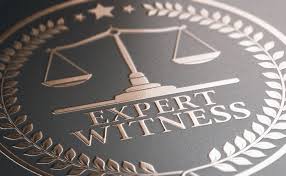Expert Witness Credibility
Expert Witness Credibility is the cornerstone of persuasive testimony in divorce litigation, shaping whether a judge accepts or questions an expert’s findings.
In divorce litigation, particularly in cases involving complex finances, custody disputes, or allegations of abuse, expert witnesses can shape the outcome. But not every expert’s testimony carries the same weight. Judges carefully evaluate credibility before deciding how much trust to place in an expert’s opinion. So, what makes an expert witness credible—and what compels a judge to listen truly?
The Foundation of Credibility
1. Strong Qualifications
An expert’s credentials are the first factor under scrutiny. Judges look at education, licenses, professional certifications, and years of relevant experience. A forensic accountant with 20 years of experience and recognised certifications, for example, may have more influence than a newly licensed professional.
2. Relevant Experience
Academic knowledge alone isn’t enough. Judges want experts who have real-world experience applying their expertise in similar cases. A child psychologist who has testified in custody disputes before may be seen as more reliable than one who has only worked in research.
3. Clear and Consistent Testimony
Credibility often comes down to how well an expert communicates. Judges listen more closely when testimony is:
- Clear, without unnecessary jargon
- Consistent with other facts in the case
- Logical and based on established methodologies
Contradictory or confusing testimony can undermine an expert’s standing.
4. Impartiality and Objectivity
One of the strongest markers of credibility is neutrality. Judges are quick to dismiss experts who appear biased toward one party. A credible expert presents findings objectively, even if those findings don’t fully support the side that hired them.
5. Ability to Withstand Cross-Examination
An expert’s confidence under pressure matters. Judges observe whether the witness remains composed, answers clearly, and defends their methodology without becoming defensive or evasive. The ability to withstand aggressive questioning reinforces credibility.
Red Flags That Damage Credibility
While judges value expertise, they are equally wary of red flags, such as:
- Exaggerating credentials
- Using speculative or untested methods
- Showing a clear bias for one side
- Providing inconsistent testimony
Even a highly qualified expert can lose credibility if these issues arise.
Why Credibility Matters in Divorce Cases
In high-conflict divorces, judges rely on expert witnesses to shed light on technical matters such as:
- Business valuations in high-asset divorces
- Psychological evaluations in custody battles
- Medical opinions in cases involving alleged abuse
When credibility is established, an expert’s testimony can directly influence decisions about asset division, custody arrangements, and spousal support.
Judges listen closely to experts who demonstrate qualifications, relevant experience, clear communication, objectivity, and composure under pressure. In divorce litigation, where emotions run high and facts can be disputed, the credibility of an expert witness can be the difference between winning or losing key issues.
FAQs: Expert Witness Credibility
Q1: Do judges always accept an expert witness’s testimony?
No. Judges evaluate the credibility and relevance of the expert before deciding how much weight to give their opinion.
Q2: Can a judge reject an expert witness?
Yes. If the judge finds the expert unqualified, biased, or using unreliable methods, the testimony may be excluded.
Q3: How do lawyers choose credible experts?
Attorneys often look for experts with strong credentials, prior courtroom experience, and reputations for objectivity.
Q4: Can one expert outweigh another in court?
Yes. If two experts present conflicting opinions, the judge will side with the one who demonstrates greater credibility and reliability.
Q5: Does communication style really matter in credibility?
Absolutely. Experts who explain complex concepts clearly and logically are far more persuasive than those who confuse or overwhelm the court.


Leave a Reply